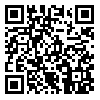2- Assistant Professor, Department of Occupational Health Engineering, School of Public Health, Tehran University of Medical Sciences, Tehran, Iran ,
3- M.Sc., Department of Epidemiology and Biostatistics, School of Public Health, Tehran University of Medical Sciences, Tehran, Iran
Introduction: High level of workload and its consequent cognitive failures are among factors which impact nurses’ behavior, performance, and efficiency. This study aimed to investigate the relationship between nurses’ cognitive failures and perceived workload.
Material and Method: This cross-sectional and descriptive-analytical study was carried out among 150 male and female nurses, working in different units of Emam Khomeini and Vali-e-Asr hospitals in Tehran in 2013. NASA task load index (NASA-TlX) and Cognitive Failure Questionnaire (CFQ) were used to assess workload and cognitive failures, respectively. Data were analyzed using Pearson Correlation, Independent sample t-test, and one-way ANOVA statistical tests with SPSS software version 20.
Result: Pearson and Spearman correlation coefficients test results showed a significant relationship between nurses’ mental workload and their memory for names (P-value<0.001). Moreover, there was significant association between physical workload and memory, attention and total cognitive failures (CFQ total) (P-value<0.05). Perceived frustration mong nurses was significantly correlated with memory, attention, motor functions and total cognitive failures (P-value<0.05).
Conclusion: The results showed a high level of workload among study nurses. Furthermore, the relationships between some dimensions of mental workload and cognitive failures were confirmed, so that an increase in workload dimension can lead to more cognitive failures while doing task.
Received: 2016/06/18 | Accepted: 2016/06/18 | Published: 2016/06/18
| Rights and permissions | |
 |
This work is licensed under a Creative Commons Attribution-NonCommercial 4.0 International License. |


